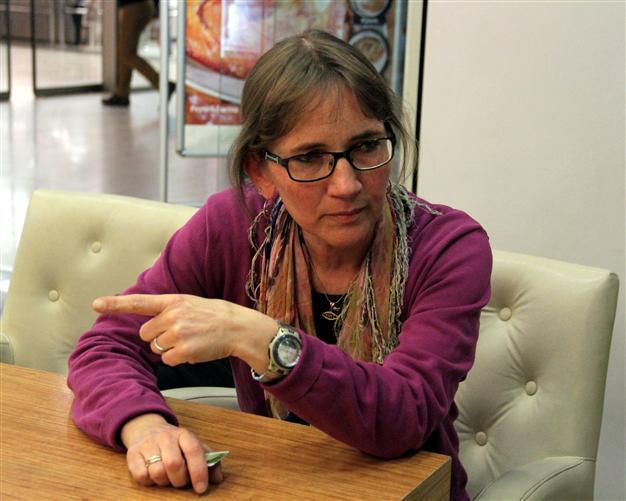Conditional release of 5 suspects of missionary murders provokes strong reactions
MALATYA – Anadolu Agency

Geske’s widow said the release of the murder suspects caused a sense of injustice. AA Photo
Five men accused of torturing and murdering three Christian missionaries in 2007 have been recently released on the condition of wearing electronic bracelets, a Turkish court has ruled, after the suspects’ time in detention while on trial exceeded the new legal limits.
Five suspects: Emre Günaydın, Cuma Özdemir, Hamit Çeker, Salih Gürler and Abuzer Yıldırım, walked free from their high-security prison in Malatya on March 7.
German missionary Tilman Ekkehart Geske and Turkish converts Necati Aydın and Uğur Yüksel had their throats slit at the Zirve Publishing House in April 2007 in the eastern province of Malatya after being tied up and interrogated about their missionary activities.
The Justice Ministry said four suspects were wearing electronics bracelets in their homes after their release, while another was not wearing it because the GSM operators did not work near his house. The ministry also said they were working on activating the electronic bracelet for the fifth suspect by using his landline number.
Geske’s widow said the release of the murder suspects caused a sense of injustice. “Of course this is injustice, because they have released murderers. This system, of course, [should] not work like this,” she said.
The three victims were members of the city’s tiny Protestant community. The trial of the five men accused of the attack is still going on seven years later.
Under a new law passed by the Turkish Parliament last month, the detention limit for suspects on trial who have not yet been convicted was lowered to five years, paving the way for the five accused to be released on bail.
The murders at the time fuelled fear among Turkey’s small Christian minorities and raised concern over rising nationalism and hostility toward non-Muslims in Turkey, a predominantly Muslim country seeking European Union membership.
